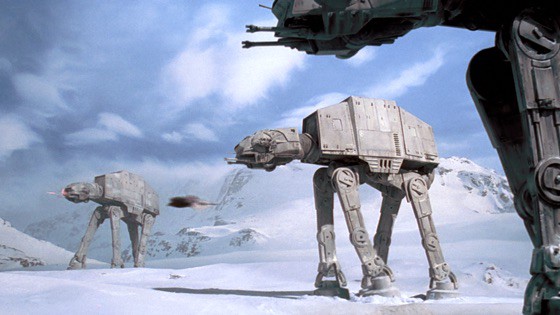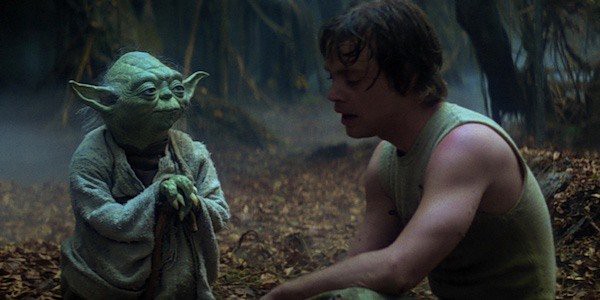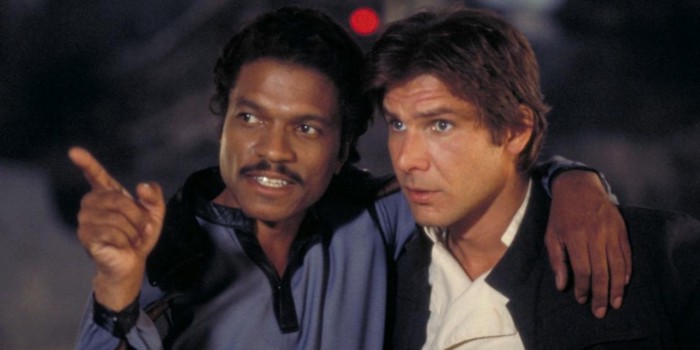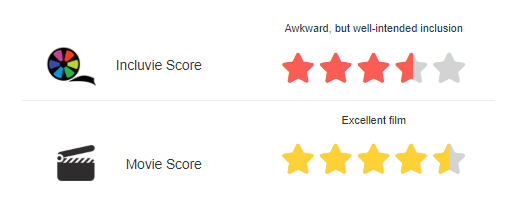'Carol' Movie Review: A Gorgeous LGBTQ+ Romance
The 1950s lesbian romance is stunning, emotional, restrained, and, simply put, one of the best movies I’ve ever seen depicting a woman-loving-woman (WLW) relationship.


In 1977, Star Wars changed the world. It took the universe by storm, completely redefining everything everyone knew about movies. But then, in 1980, The Empire Strikes Back changed Star Wars.
Sequels were not as well regarded back then as they are today. Other than 1974’s The Godfather: Part II, sequels were typically seen as mere cash grabs that couldn’t possibly match the quality of the original, let alone exceed it. In the same way that George Lucas’ Star Wars fundamentally changed everything with its release, The Empire Strikes Back shattered this stigma, proving that there were endless story possibilities for more Star Wars.
Directed by Irvin Kershner, The Empire Strikes Back was released on May 21, 1980 — forty years ago today (article originally published 5/21/2020 by Nathanael Molnar). It’s amazing to think about how much time has passed since this seminal film was released, and how much has changed in its wake. We live in an age of franchise movies, where ongoing cinematic stories are ever evolving. Star Wars was essentially the first movie franchise to break into the mainstream. There were theatrical series like Planet of the Apes and Godzilla, but nothing had the simultaneous commercial explosion that Star Wars experienced.

The Empire Strikes Back introduced the concept of an expanded universe by referring to itself as “Part V” in the opening crawl, insinuating more story preceded 1977’s Star Wars. With this, the floodgates were thrown open for large-scale cinematic franchises. This has ultimately grown into what we have today with the Marvel Cinematic Universe; Avengers: Endgame itself just turned one year old. Looking back on Empire, it’s fascinating to examine how the sequel cemented the legacy of this new forming franchise.
Prior to its release, Star Wars was the laughing stock of Hollywood. Not too many people understood what George Lucas had in mind, including many of his cast and crew. With the help of those who were able to tap into George’s vision, they managed to put together a film that ended up blowing everyone away and changing the direction of cinema overnight. Now that Lucas’ concepts were cemented, it was time to play in this newly unearthed sandbox.
From the opening snowscape of Hoth, Kershner and Lucas establish that Empire isn’t going to be a thematic repeat of its predecessor; this is solely going to move the story forward. While Star Wars introduced us to the main characters, Empire dives deeper into them, testing who they actually are and where they stand. The great thing about The Empire Strikes Back is that the heroes lose in the end. The forces of evil triumph. There is no happy ending to Empire, only the characters facing tragic failure.
Empire is about the fight for what is good, even if it is ultimately in vain. After training on Degobah with Yoda (Frank Oz), Luke (Mark Hamill) senses that Han (Harrison Ford) and Leia (Carrie Fisher) are in danger, and decides he must leave. Yoda and Obi-Wan (Alec Guinness) warn him that he is playing right into the Empire’s hands, and that he hasn’t had enough training. Luke tells them that it is what needs to be done, even if he isn’t fully prepared for it. He knows the odds are against him, and this very well may end in his or other people’s deaths. However, it is the right thing to do, and therefore it must be done.

At the very end of The Empire Strikes Back, the biggest movie twist of all time is unveiled. Darth Vader (James Earl Jones) being Luke’s father may be commonplace knowledge today, especially after the prequels. However, in 1980 when audiences saw it for the first time, it fundamentally changed everyone’s perception of Star Wars. The cataclysmic twist, paired with a bleak ending, sucker punched audiences and overturned everything they thought they knew about the series.
The Vader reveal is instrumental in Luke Skywalker’s character arc. His journey in Star Wars was going from an obnoxious farm boy picking up power converters to becoming an adult who, while not trained, has the will to fight. Empire deepens his convictions but, when Vader reveals himself to be Luke’s father, the rebellion is made personal to him in a way that it hadn’t before. It is what makes Luke’s appearance in the beginning of Return of the Jedi so significant, as he has clearly matured into the Jedi Knight he was always meant to become.
The diversity in Star Wars is interesting. Lucas was famously hesitant to cast James Earl Jones as Darth Vader because he didn’t want to have the only actor of color be the villain. Why the solution then would be to have no people of color, as opposed to casting more people of color in other roles, remains a mystery. Regardless, James Earl Jones’ booming voice defined Darth Vader’s menace.
In Empire, we are introduced to the suave and charismatic Lando Calrissian, played by Billy Dee Williams. Lando is the stewart of Bespin, a prosperous planet seemingly isolated from the reach of the Empire. That is, until Lando betrays Han. One striking element of Lando’s character that may go unnoticed by some viewers is that he is a person of color in a very high position of power, and his skin color is never referenced or made to be a defining part of his character. For 1980, for a film as big as Empire, this is important for people to see. Ultimately, the original Star Wars trilogy could have gone farther with its use of representation, though the sequel trilogy does certainly improve upon it.

I hold The Empire Strikes Back to be the best of the Star Wars movies, as well as in my top ten favorite films of all time. I think it is the very best of what Star Wars can be. It takes the world that Star Wars created, and builds within it a more mature narrative. It puts its characters in challenging situations, testing their resolve. The introduction of Yoda brings an intellectualism and a wisdom that deepen the messages of the film.
The movie makes the bold decision to end with the heroes losing. Han is frozen in carbonite, Luke has lost his hand, and he has learned the truth about his father. Empire is far more character-centric, putting aside the story of the Rebellion as a whole to focus on these specific characters. The climax of the film isn’t a stunning loss for the Rebellion; it’s a loss for these characters.
The Empire Strikes Back subverted everyone’s expectations as to what a sequel to Star Wars would be like. It flipped the script for sequels in general, and defined long-form franchise story telling on screen. As much as Star Wars entirely changed the game, its legacy would be radically different if it wasn’t for The Empire Strikes Back.

Author: Nathanael Molnar, originally published [5/21/2020]
Related lists created by the same author
The 1950s lesbian romance is stunning, emotional, restrained, and, simply put, one of the best movies I’ve ever seen depicting a woman-loving-woman (WLW) relationship.